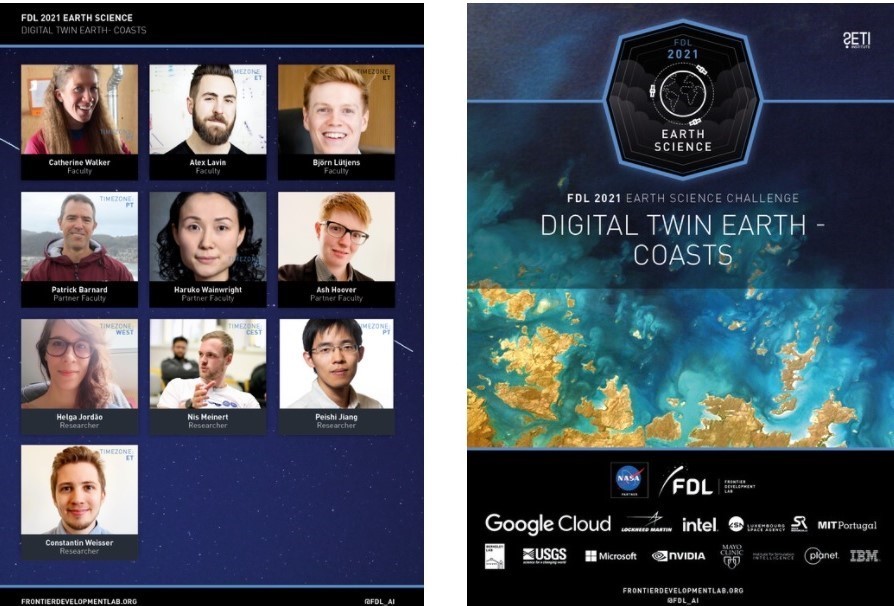FDL and the Earth Intelligence Engine - MIT Portugal team
NASA’s Frontier Development Lab (FDL), the SETI Institute, and FDL’s private sector and space agency partners held their sixth annual summer research accelerator in an entirely virtual structure due to the COVID-19 pandemic. For the second year, MIT Portugal sponsored the summer sprint along with Lockheed Martin, Intel, and IBM.
MIT Portugal was represented through the Digital Twin Earth – Coasts team which sought to answer: Can we use AI and physics to build a “digital twin Earth” of the coasts? The team shared their results in a Digital Showcase in late August. MIT graduate student Björn Lütjens served as a team member and mentor for the second year. In response to their challenge question, the team reported:
It turns out we can develop physics-informed neural networks (PINNs), a new class of deep learning that can seamlessly integrate data and abstract mathematical operators, including differential equations with or without missing physics. With PINNs we can leverage physics-based prior knowledge or constraints and produce interpretable ML methods that remain robust in the presence of imperfect data, and can provide accurate and physically consistent predictions—even for extrapolation and generalization tasks. These features are essential for reliably modeling the harucomplex, dynamic nature of coastal regions with myriad, mixed-modality data sources (such as satellite imagery and oceanic measurements). We aim to develop this PINN-based digital twin for the entire USA and its territories, and potentially generalize to all coasts. We hope to forecast potential climate scenarios and discover new dynamics of coastal ecosystems with this digital twin.

